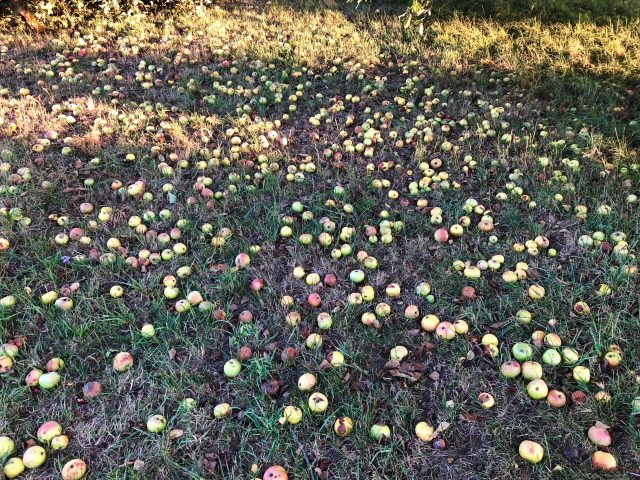This website uses cookies so that we can provide you with the best user experience possible. Cookie information is stored in your browser and performs functions such as recognising you when you return to our website and helping our team to understand which sections of the website you find most interesting and useful.
Heineken chops down orchard to sell land
Heineken, which owns Bulmers cider, has uprooted thousands of trees so it can sell the land at one of its expansive orchards.

The orchard, which according to reports from the BBC, was the size of 140 football pitches, was based on the Offa’s Dyke path in Monmouthshire.
Heineken reportedly wants to sell the land and has blamed a slow down in demand for cider as the reason for felling the trees which were planted in 1997.
The National Association of Cider Makers (NACM) revealed that the amount of cider being consumed in Britain had plummeted by a third over the past decade “leading to this devastating loss of orchards” equal to 2,000 acres of British cider apple orchards disappearing in the past few years.
The NACM lamented that, due to high tannin levels, the trees “have no other use than for making cider” however environmentalists have said are concerned about the effect on migratory bird populations.
Ecologist Chris Formaggia said: “At this time now all the trees would be in their full blossom. It would be a really impressive area so the changes are absolutely total, really.”
The biggest impact is said to be on wintering thrushes including fieldfare and redwing that thrive on “wind-blown apple crops”.
Formaggia explained: “This orchard was absolutely teeming with these winter thrushes. I think inevitably there will be a big loss here, particularly with those wintering populations. That foraging and that safety of the trees has gone and it’s not going to be replaced.”
Heineken has insisted that it has acted in accordance with the Wildlife Act and agreed that it was “incredibly important that we act responsibly and sustainably at all times”.
The move follows the Welsh government recently consulting on plans to ensure farmers grow trees on 10% of their land to qualify for a subsidy scheme in a bid to tackle carbon emissions. The scheme is, however, voluntary which means Heineken is not obliged to follow it.
Speaking about the situation, a spokesperson from Heineken highlighted how “in November 2023, Heineken made clear its intention to sell Penrhos Farm in Wales, one of two apple farms which the company owns” and admitted that “over a number of years, the cider market has slowed and the yield of apples per acre has increased leading to a huge surplus of apples”.
This, the spokesperson outlined has meant that “the bittersweet apples grown at the commercially-farmed bush orchards at Penrhos have no other use than creating cider” and so “in order to make best use of the land to grow other crops, the bush orchards had to be removed”. The drinks giant explained that “all the wood is shredded for biomass and the bushes were removed in line with The Wildlife Act”.
According to the spokesperson, Heineken “firmly remain a cider, beer and pub company” even though “the cider market has declined over the last few years” it assured that it was “absolutely committed to investing in the cider category and returning it to growth”.
The spokesperson pointed out that over the last couple of years, Heineken has “invested millions of pounds” into its cider brands as well as “supported British agriculture” and has stated that it plans to continue to source its “apples from around 6,000 acres of orchards in and around Herefordshire”.

